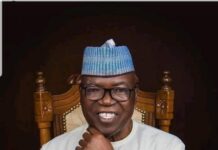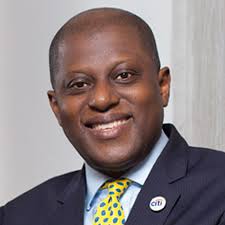
Email: ochima495@gmail.com
SMS: 08055001912
The conduct of our national elections suffers from two historical disabilities that are deleterious to its health. One is trust deficit and the other is a template which provides the basis for judging all our elections the same way, no matter what progress we might have made in our leadership recruitment process.
The first disability posits that no Nigerian should trust his fellow Nigerian to do what is right. He must always be seen to act not with honest intentions but with ulterior motives. In an exceptional case where he does the right thing, he is suspected of having been settled – a term which suggests that in our country, the arc of honesty always bends towards the man who pays the piper.
The second disability is a ready tool with which foreigners, including foreign observers to our national elections, fit in the conduct of our elections. This template posits that like Nazareth, nothing good can come out of our elections. Why bother? We are a country of election riggers and cheaters who know no shame. It provides too that when one man is winning, the election is fraudulent because it denies the other man the right not to lose. I call it amala logic. It continues to confuse us.
Both disabilities have held the conduct of our elections at all levels hostage to ready-made answers even where there are no questions. Because of this, the conduct of our elections is condemned even before an election is conducted. We came to the 2023 presidential and national assembly elections with the two disabilities. We refuse to consider what has been done by INEC so far to clean up the system and make the 2023 general elections freer, fairer, more transparent and more credible than our earlier elections. Trust deficit is a red flag flown on the poles of our fault lines of ethnicity and religion.
I invite you to look at the views that trail the conduct of the 2023 presidential and national assembly elections. The totality of the condemnations by the jaundiced, the poorly informed, the informed but mischievous as well as the uninformed does not reflect what was seen of the elections by individuals and groups; it merely reflects the amplified trust deficit imposed on the template.
The howl of protests about rigging, manipulations and disenfranchisement began long before the people went to their various polling units to cast their votes. Given the template, the assessors of our leadership recruitment process believed they knew to which direction the arc was bending. To condemn it before hand was not to sabotage the process but to intimidate the electoral umpire and force it to see the calamity likely to be visited on the country streaming across the sky like the rainbow. Is this an unfortunate country of patriots who cannot spell patriotism or what?
I would be the last person to suggest that the just concluded elections were perfect. But I would be the first person to suggest that we have never had it so good in the conduct of our elections. We have managed to reach our finest hour here and now. Yes, there were electronic glitches not strange to the digital age. But these could not take anything away from the conduct and success of the elections that put saboteurs and hackers to shame.
The BVA has revolutionised our elections. We have evidence today that for the first time in our national history, the ballot paper made a difference in the political misfortunes of the well-heeled and the fortunes of the okada rider in Kaduna State heading for the house of representatives. The votes counted, the mighty fell on the sword of the people’s rejection and the reject of the earth rose because the votes counted as never before. The signposts are evident everywhere. They glitter like the diamond in the sun. With the BVA as the rampart against the flood of rigging, we are moving away from a government of the powerful and the influential to a government freely instituted by the people.
This is the kind of presidential election the late President would have loved to have brought him to power in the 2007 general elections. At his inauguration, the president diplomatically condemned the election that brought him to power. He was so unhappy with it that he promised to do something to clean up the system and make our elections free, fair, transparent, and credible. Just for the record, the said election was conducted under Obasanjo’s watch.
Professor Mahmood Yakubu, the INEC chairman, took on the challenge to do much better than the parade of professors that sat on that chair before him. Some of them made a mess of eating the yam pottage served them and soiled their professorial integrity with palm oil.
Yakubu has fought the entrenched political interests in the executive and the legislative arms of government that treated the people like convenient tools to legitimise their fraud. These men believed that the system as it was best served their political interests and must be maintained. They looked at the small picture of self-interest, but Yakubu looked at the larger interest of the nation, notorious for the conduct of its elections lacking in integrity. In the end, he defeated the forces of retrogression. His victory is reflected in the new electoral act.
That act has all but plugged the loopholes in the electoral system and made rigging almost impossible. It is evidence of what one man armed with moral courage can do to change a system. The hitches, the violence against the commission and its personnel in parts of the country are merely the forces of darkness fighting back and losing the battle.
For most Nigerians, the most visible evidence that Yakubu has moved this nation’s electoral process and the conduct of its elections to a higher ground is that in the just concluded elections, the votes of the electorate counted. The will of the people could not be bent or sabotaged. It has prevailed. No presidential candidate scored millions of votes in his geo-political zone. The BVA has confronted us with the truth of our elections. But for the BVA the 84 million registered voters would have been shared among the presidential candidates and each of them would have coasted home with millions of non-existent votes. The conduct of each election ought to be judged on its own merit. Not even the foreign observers have done that.
For the first time, as we say in Agila, the iroko tree was turned into soft wood. Here are some of the unexpected that happened because the people’s votes rather than money or influence counted. President Muhammadu Buhari lost his state. We are talking about the president of the country humbled by the ballot paper in the hands of the talakawa in his state.
Ahmed Bola Tinubu, regarded for good reasons as the father of Lagos State, lost it to Peter Obi. I thought that if rigging was the name of the game, Tinubu, not Obi, would win the state. But not even the great Asiwaju could bend the will of the people.
Simon Lalong, governor of Plateau State and director-general of Tinubu’s campaign organisation, lost his state. He thought he would follow the beaten path and go to the senate, but the people gave him the thumbs down. We are talking of a state governor who, for eight years made and unmade individuals. Where did the people get the guts to abort his ambition? Ask him.
The same fate befell General Dr Samuel Ortom, commander-in-chief of the Benue security outfit. He was a member of the G-5 and cast about for a political platform. In the end, he ditched his own political party, PDP, and hitched himself to the Obidient waggon. It did not save him. He lost the state. He who has ridden rough shod over the weal and the welfare of Benue citizens by letting pensioners starve to death and turned his civil servants into beggars, was heading for the senate too. He forgot that this time around the ballot paper can avenge the wrong done to the people by their so-called leaders.
Governor Ahmad El-Rufai of Kaduna State, the stormy petrel who, truth be told, became a thorn in the flesh of his own party and exposed its shenanigans, lost his state too but still made history with the election of an okada rider into the house of representatives.
I could go on citing more instances of how, with the freedom to freely use the ballot paper, the people freely decided the fate of their political leaders. Did something like this happen in 2019? Yakubu has pressed the BVA into service in our leadership recruitment process. I predict that few, if anything, will remain the same in our electoral system. Where the people’s votes count, the people matter and cannot be treated like convenient trash.
The instances cited above cannot be cited as evidence by the sane that the presidential and national assembly elections were poorly conducted and openly rigged just to fit the elections into a template. Ahmed Bola Tinubu did not win the presidential election through rigging before and during the election. The BVA is the new sheriff in town. He won because the people, free to freely use their ballot papers as never before in our history, made their choice and spoke their mind. He won because a welcome political era has dawned on this nation and the power of the rich and the powerful and the influential is in retreat. It took the bullet on January 15, 1966, to change the nature of our national politics. Now, it has taken the BVA to restore to the people their right as the custodians of power. It would be foolish of us not to hit the owambe dance floor.



